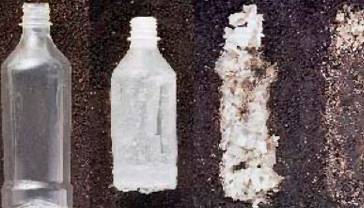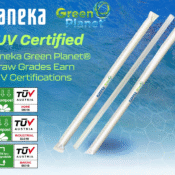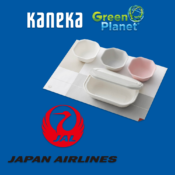
December 8, 2020
/
Are Biodegradable Plastics Better for the Environment?
Is biodegradable plastic good for the environment?
It’s a simple question, one that sounds like it has an obvious answer. When you have the choice of “biodegradable plastic” and “just plastic,” biodegradable always just sounds better. Even though it sounds simple, it gets a little bit tricky when you start to think about what these “biodegradable” plastics are made from and how they eventually will be disposed.
First, let’s think about the choices of plastics we have available. You have conventional plastic, which is made from petroleum and may take hundreds of years to decompose, as far as we know. Then you have the newer type of bioplastics like Kaneka PHBH™, which is a naturally occurring polyester made from microorganisms that live in soil.
We have known about these products for a long time, but we now finally have found a way to have them commercially produced, and Kaneka PHBH™ is made using plants as feedstock. There are also other bioplastics made from corn starch and sugar cane. The bottom line is there are many choices available today to be considered.
How Does Biodegradable Plastic Affect the Environment?
How we dispose of these plastics makes all the difference when thinking about the impact of biodegradable plastics and bio-plastics have on the environment. Most biodegradable plastics are not meant to just be thrown in the trash or put in the recycling bin. They are meant to be sorted and sent to an industrial composting facility in order to be properly broken down. Not all bioplastics are created equal and some will decompose much faster than others given the right environment.Impact of Bioplastics on the Environment
Kaneka’s PHBH™, a plant-based biopolymer, is a revolutionary alternative to traditional plastic. Kaneka’s biopolymer resin can naturally break down and return to nature, given the right environment. This biopolymer is strong enough to use daily and is heat resistant. Kaneka PHBHTM Resin can replace any type of traditional single-use plastic used in disposable cutlery, plates, cups, bags, and straws. Kaneka PHBHTM Resin can be home composted or can be sent to a composting facility. This biopolymer is an important part of reducing the amount of traditional plastic that is pushed into our oceans and landfills every year. Request more information about Kaneka PHBH™ today!For more information, see our compostability / degradability disclaimer




